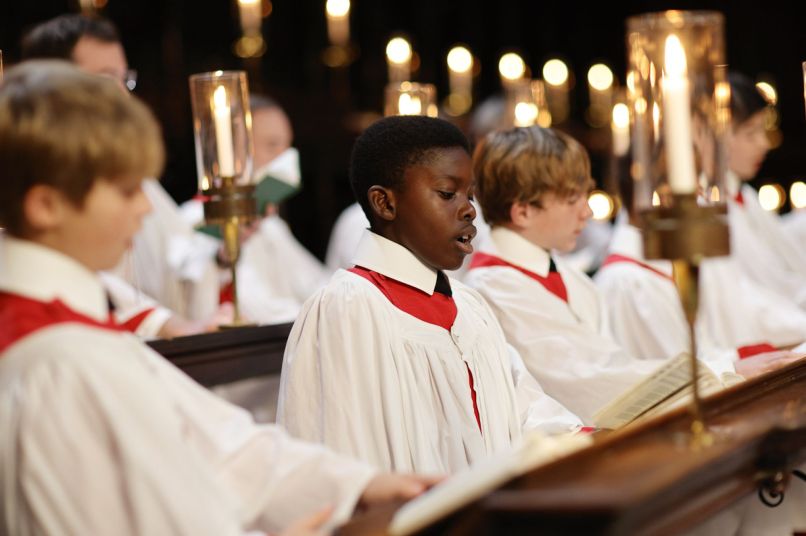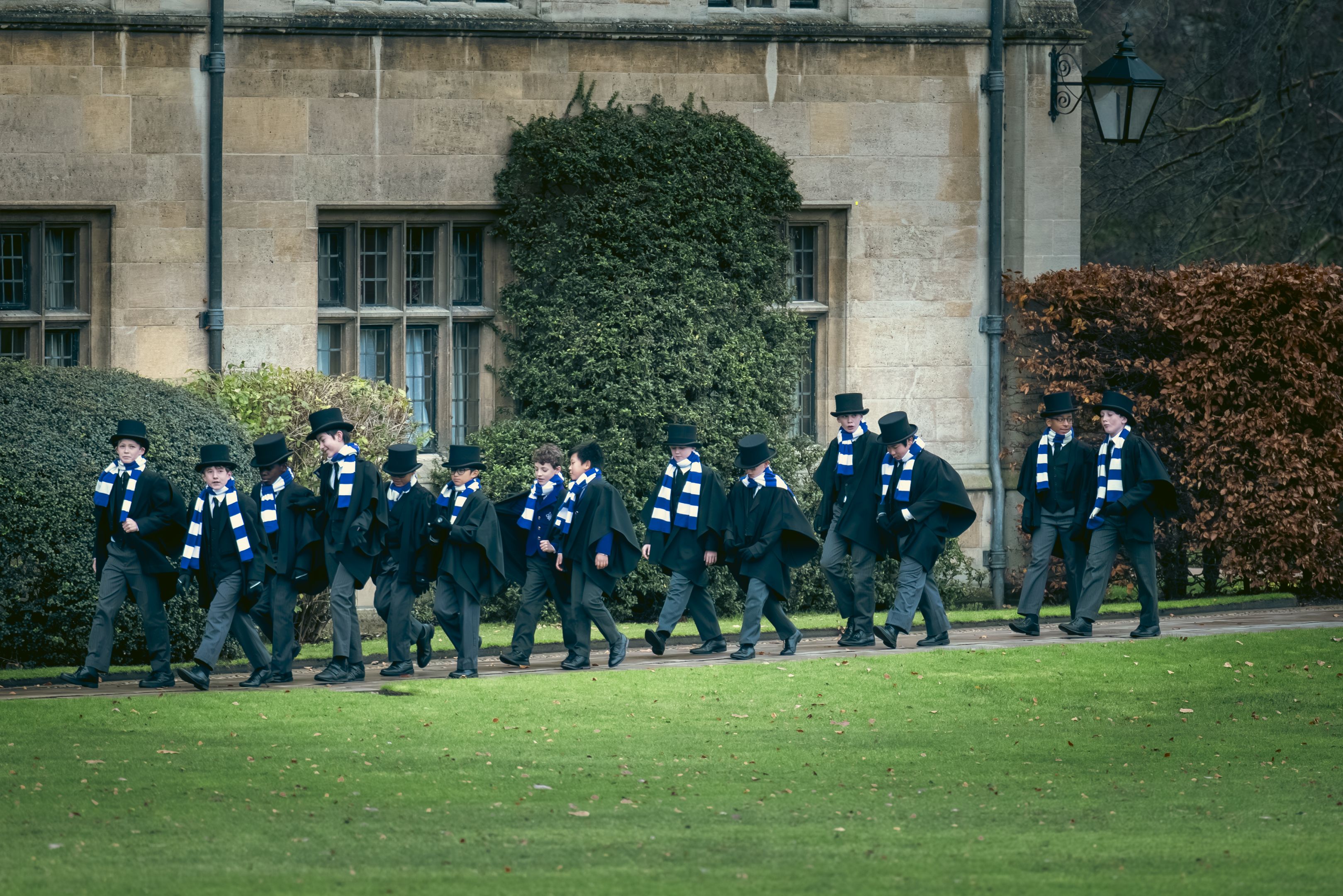Choristers
Becoming a chorister boosts confidence and teaches independence, dedication and organisation. A chorister learns both how to lead and how to work effectively in a team; skills that serve them well whatever path they choose to follow in the future.

On this page

Sixteen boys, known as 'choristers', sing in King's College Choir and study at King's College School. Being a chorister requires commitment but also offers an incredibly rewarding experience.
The chorister experience is probably the best musical education available to children between the ages of 9 and 13. It also brings the benefit of skills that last a lifetime.
At King's we're looking for boys in Years 2, 3 and 4 with a love of music and singing. You don’t have to be a musical genius to become a chorister: we provide all the training – in singing, music theory and instrumental skills – all alongside outstanding academic tuition and a full sporting programme.
Becoming a chorister boosts confidence and teaches independence, dedication and organisation. A chorister learns both how to lead and how to work effectively in a team; skills that serve them well whatever path they choose to follow in the future.
The Chorister experience
King's College School
The King's College Choir choristers are educated at King’s College School
King's College SchoolCommon questions
Questions and answers about the Chorister experience and King's College School
Common questions
Get in touch
We'd be delighted to answer your questions about what's involved and to talk with you about whether the chorister experience might be right for your son and for your family.
